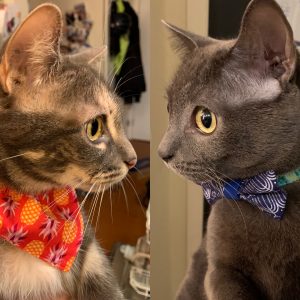Hello Everyone!

Collins, Zac. “My Face at the Beach.” 2020, JPEG.
And welcome to my Blog. Here, I will be updating my journey through Canadian Studies: Oh, Canada… Our Home and Native Land? This is an upper level English course where we will be reading Thomas King, Edward Chamberlin, and many others to get a sense of the effect that colonial narratives have on our understanding of stories and literature.
I have some background in writing. My first degree was in Philosophy, where I learned about how people communicate and think about communication, and how to interpret the many ways that people come to see the world. I learned about how language can be used to better our understanding of the world and provide depth to the ideas we take for granted; but also how it could be used to dismantle, confuse, distort, and damage our understandings as well — something that has never felt so relevant.
Why would you leave such a lucrative field as philosophy? you might be asking me, well, as it turns out, the world has enough philosophers. Besides, I wanted to work in a space that had a sense of community built into it. I decided to enrol at UBC’s teacher education program, and after 11 months in that program, I became a fully certified elementary school teacher. For the past couple of years I have been teaching at schools in the Richmond School district, working with English Language Learners, and students that need resource support. And what I have learned is that I have a lot more learning to do.
My hope within the next few years is to have an intermediate classroom and earn a Masters related to a critical approach to social justice and activist education for intermediate and high school students.
I hope that this class will help me develop a better sense of how stories exist in the world outside of literature, and how they may still coexist. I hope to be able to recognize the colonizing narratives that may come into play in the stories I share with my students, and use these narratives to address the larger social impact of colonial storytelling. And I hope to broaden my sense of where important stories and lessons can come from outside of colonial Literature to be able to share sources of meaningful non-colonial work with my students.

Collins, Zac. “My Two Cats.” 2020, JPEG.
“Bachelor of Education Program.” UBC Teacher Education Office, teach.educ.ubc.ca/bachelor-of-education-program/. Accessed 17 Jan. 2021.
Cohen, Daniel H., “For Argument’s Sake.” YouTube, uploaded by TED, 5 Aug. 2013, www.youtube.com/watch?v=JTN9Nx8VYtk.
“The Truth about ‘Post-Truth’.” Ideas from CBC Radio, 19 Jan. 2017, www.cbc.ca/player/play/858449475803.

10 replies on “Blog 1:1 — And Now For a Quick Introduction”
Hi Zac – loved your post. Your great bit about language and communication has me thinking about the nuances of language and colonisation. Much has been written re: colonial linguistics and the oppressive capacity for a dominant language (English) to subsume Aboriginal linguistics as only one facet of the historical and continued genocide of Canada’s First Nations. I recommend (if you haven’t read already) Tuscarora author Alicia Elliot’s “A Mind Spread Out on the Ground,” part-short story, part-analysis, to examine the effects of linguistic assimilation and linguistic genocide on our First Nations, and the implications of Elliott, an Indigenous author, being forced to write in the language of her oppressors in order to reach a wider audience. What does it mean that even in writing a counternarrative concerning the marginalization of her people, Elliott writes in the language of the colonizers? Does this imply that counter-narratives are often formed within, rather than without, the dominant colonial structures which oppress them?
I love what you said about language and communication changing how we “come to see the world.” I alos like that you countered your optimism with how you felt that language can “damage our understandings as well” – is language itself used by oppressive superstructures as a means of oppressing?
Thank you, Leo for your kind and thoughtful response! I had never heard of Alicia Elliot, and I am so glad that you’ve recommended her. “A Mind Spread Out on the Ground” sounds right up my alley! I’ll have to add it to my repertoire.
I also agree with your analysis that “language itself [can be] used by oppressive superstructures as a means of oppressing.” I feel like language is a very oppressive force, as we have only seen more and more in what’s been referred to (erroneously, I think) as the Post-Truth era. We live in a current media culture that views the truth as flexible and subjective, in order to push the subjective narrative that they choose.
The problem is that the truth IS flexible and subjective, because those who are witnessing the truth, and experiencing the truth, and expressing the truth to others are flexible and subjective. What’s missing is the focus on trust and common understanding in expressing these narratives.
So if we are damaging our understandings by abusing this subjective idea of truth, then how can we get back to a shared understanding without risking some perspectives from being ignored and oppressed? Maybe even this focus on ‘truth’ is what is truly oppressive, and we need another means of mediating disagreement.
Hello Zac,
Thanks for posting your Blog – looks great. I have recently became a cat person and you have two beautiful kitties, thanks for the photo. Your goals are admirable, young people today certainly need the skills necessary to advocate and act on a better more just society and an environmentally aware society. I am looking forward to working together this semester.
Hello Erika,
Thank you for the kind welcome! I’m looking forward to working with you, too!
Hi Zac,
I was excited to read your blog. I am also a UBC Teacher Ed grad and I am also now a teacher in Richmond. Small world. I have been surprised at how isolating teaching can feel (especially during a pandemic, obviously) and it is always great to meet and speak with other teachers with shared values. Your career goals sound exciting and important.
Your final paragraph reminded me of a conversation I have been having with the English department at my school related to low enrolment and interest in the course English First Peoples 12. This course is equal to English 12 in regards to graduation requirements and university admission, as far as I know, but it is not perceived to be of the same significance or value as English 12 by students and parents (and probably in unconscious ways by teachers and administrators as well). I could rant about this for ages, but I will try to make a clear point. What I appreciated in your post was your hope to “broaden” your view of where stories come from and move beyond the colonial literature that has traditionally been taught in North American schools. It struck me that by creating this course, English First Peoples 12, perhaps it has made some English 12 teachers think they do not have to broaden their views at all, because if students want to learn about First Nations’ literature there is a course for that. Without a broadening and decolonizing across the entire curriculum, we are stuck with another “us” and “them” – English 12 and English First Peoples 12. Colonial English and Non-Colonial English. And guess which one people think is more valuable…?
So, my question for this post is how do we work to decolonize the curriculum in a way that is authentic and actually feels important to teachers, as opposed to feeling like just another task passed down from higher-ups that teachers grumble about in the staff room? Of course, I don’t expect you to have the answer to this massive question, but I’m interested in your thoughts.
Nice to meet you!
Laura
Hi Laura! Funny we should cross paths here!
That is an interesting problem that your school (and I’m sure many many others, too) are experiencing. on the surface it seems like a nice thing to give students the option of one or the other, but with hindsight it does seem to be a “what were they thinking” kind of situation. By creating two “separate but equal” paths, it seems that the curriculum has opened the doors to exactly what you said: “us” vs “them”. The problem with “separate but equal” is that separate is never equal. If we have two ‘equal’ paths, nature will take the path of least resistance, and in this case, ‘least resistance’ is the dominant narrative. The path that receives the most benefit from the culture around it will get more traction.
This really is too bad, because having left high school and learnt a few things on my way to this career, I feel like I would love to have taken that class in high school. It would be undeniably beneficial to learn more about indigenous literature, orature, storytelling, etc. during that time in my life. But looking back, I don’t know if the adolescent me would have felt the same way about it, or if I would have followed the path of least resistance with my peers.
You’re right, I don’t have an answer for such a wonderfully deep and compelling question. How can we solve this problem?? I know for myself that a lot of the time my learning doesn’t happen until I feel good about learning it, and I don’t often feel good about learning it until I’ve already begun doing it. Many times just being allowed to take those first steps is all that is needed to let the good things happen, and there may be too many teachers who have established themselves in their careers and are no longer willing to take those steps. And perhaps many more that don’t even realize that it is an option.
My brain often goes down the path of policy; thinking “if only there was a policy that would save the day.” I worry that that is where I’m heading now. I think there needs to be incentives for people to feel good about learning more about indigenous culture, working with indigenous folks, to meaningfully teach indigenous content. Incentives for teachers to not need the excuse of teaching a specific indigenous content class in order to teach indigenous content. Incentives for administration to set the standards for indigenous contributions in their school. Incentives for students to feel safe and encouraged to explore indigenous culture in whatever way they find meaningful.
Thank you for your thoughtful response, I wish I had more of a concrete answer.
Hello Zac!
It’s lovely to meet you!
I really appreciated your link to the CBC piece on “Post-Truth”; as you mentioned, the power of language feels particularly relevant right now. The idea that “Due to the Internet […] thoughtfulness has begun to go out the window” (05:20), while perhaps overly exaggerated in the interview, is a scary one; however, it makes the types of discussions I hope we will all engage during this course that much more important. Whose stories are we hearing, and whose do we dismiss? What defines “the truth”?
There’s a story about how truth can be subjective that has stuck with me for many years, which I encountered reading Alexandra Morton’s autobiography “Listening to Whales” when I was about ten years old. She recounts the tale of two conflicting reports of a whale sighting being called in, with one caller reporting a white dorsal-finned whale and the other stipulating a black-finned whale. When she arrived at the scene, she discovered the whale in question was, in fact, both: one side of the fin was black, the other white. The truth can change depending on your point of view! While arguably this story presents an overly literal example, it had a profound effect on me, and it reminds me that it is all too easy to become attached to the truth we know, to the point where we cannot see the truth that exists on the other side.
I am intrigued by your suggestion that we may be better served by using an alternate means of mediating disagreement; perhaps a first step would be recognizing that there can be more than one truth that is, well, true.
Hi Magda,
Thank you for your thoughtful response! I’m gonna unpack this the only way I know how: with philosophy. Note the TL;DR a few paragraphs down.
I love your example of “Listening to Whales”! I haven’t read it but your account of it reminds me of a similar story that I read as a kid in the form of a picture book “7 Blind Mice,” by Ed Young. In this story 7 mice come across something and are trying to figure out what it is. One mouse thinks they found a Snake, another thinks they found a Pillar, another thinks they found a spear, and so on until each mouse has a completely different idea about what they’ve come across. Throughout the story, you can see that what they’ve found is an elephant: the snake is a trunk, the pillar is a large foot, and the spear is a tusk. Each mouse was making good inferences for what they found, but none of them was correct: the answer was more complicated than they thought and they had to put together all the pieces in order to figure it out.
I haven’t read “Listening to Whales,” so I cannot claim to know the intent of the author or if my interpretation makes sense, but from what you described, I think that your whale story captures this idea of truth much more elegantly than my mouse story. Each caller had the idea “its true that this whale is white” and “its true that this whale is black” and then finally another person comes to the whale and comes up with the statement “both accounts are true”. Where “7 Blind Mice” seems to take the analytic idea of truth, and claims that there is an objective truth that you can see if you look hard enough, “Listening to Whales” seems to take the stance that truth is full of contradictions, and that coming to terms with the ways that our expectations of objectivity is an important way to understand the world.
I suppose this nuanced idea of truth being contradictory in nature is sort of what I was getting at when mentioning an alternative means of mediating disagreement.
Young, Ed. 7 Blind Mice. New York, Penguin House, 1991. https://www.youtube.com/watch?v=sta9xdOvSBU
Hi Zac,
I really enjoyed your post. I found it very interesting how you mentioned that not only can language help us “better our understanding of the world,” but that it can also have the reverse effect, how it can “distort and damage our understandings as well.” Very well said!
Something that I recommend looking at (if you havent already) is a reading by Mandy Suhr-Sytsma. It is part of the “We Need Diverse Books” movement, which brings to light the importance of having more young-adult literature that depicts the livelihood of both Indigenous peoples and people of colour. It also speaks on the importance of these young readers to be able to see themselves in the stories they read.
Here is a link to the reading mentioned above – https://www-jstor-org.ezproxy.library.ubc.ca/stable/10.14321/j.ctv3znw5t
Nice to meet you!
Hi Aidan,
It’s nice to meet you, too!
Thank you for the suggestion! I will absolutely check out that movement, it will come in handy in my library, classroom, and personal life.
Thank you!